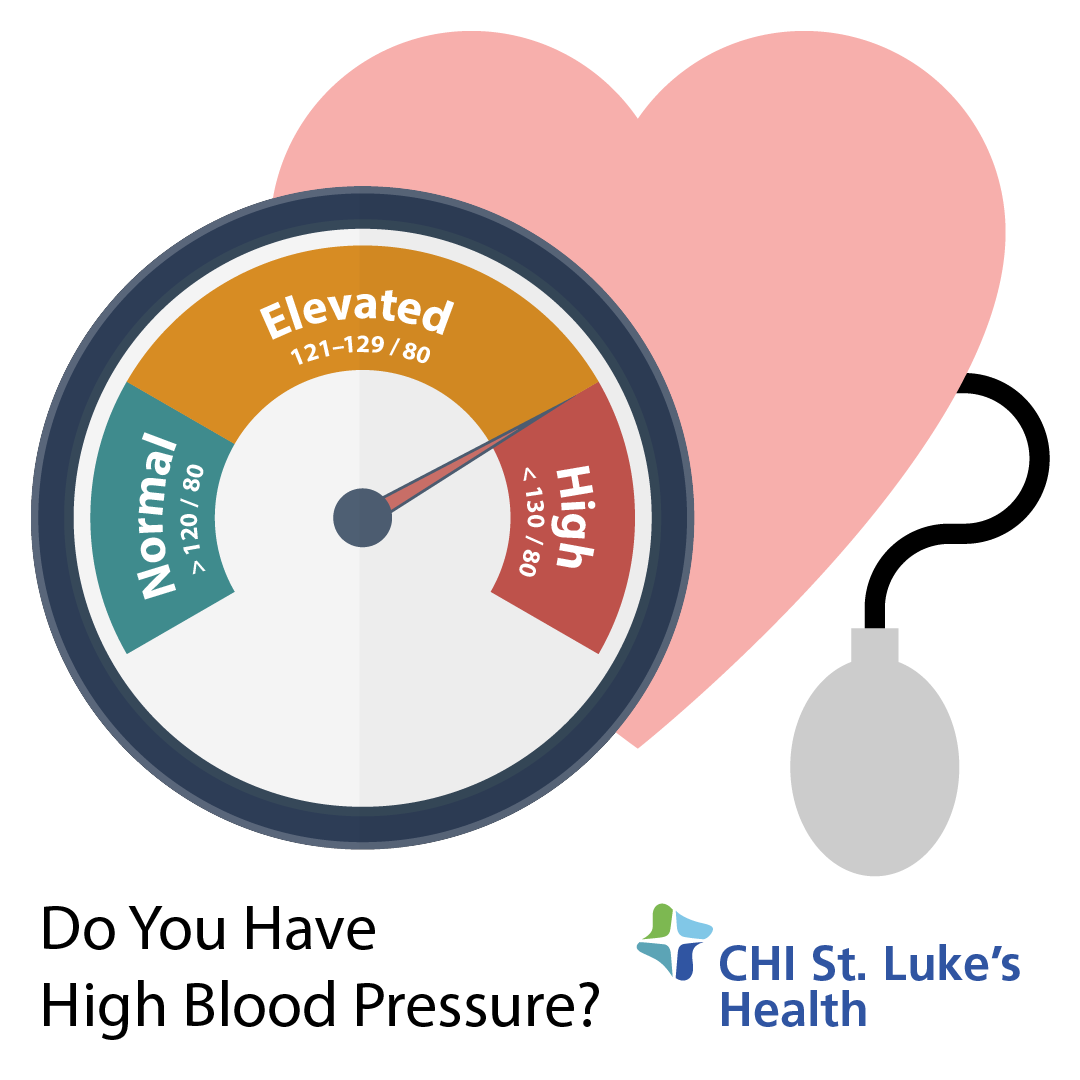St. Luke's Health joins CommonSpirit.org soon! Enjoy a seamless, patient-centered digital experience. Learn more

Heart disease is the number one cause of death in the U.S. for both men and women. Conditions like an abnormal heart rate, high cholesterol, and high blood pressure are indicators of and risk factors for heart disease. Manage your numbers to lower your risk.
Blood pressure refers to the pressure of circulating blood on the walls of your vessels. The American Heart Association and American College of Cardiology recently lowered the margin for high blood pressure, the first change to this threshold in 14 years. This means nearly 50 percent of American adults have high blood pressure.
Your blood pressure reading is made of up your systolic blood pressure and diastolic blood pressure. A normal reading is less than 120/80. Your blood pressure is considered elevated between 120–129/80. You have high blood pressure with numbers higher than 130/80.

Cholesterol is a waxy substance that occurs naturally throughout your body to help it function properly. But too much cholesterol can lead to a buildup of plaque in your arteries. Your cholesterol score is the amount of HDL, or “good” cholesterol, plus the amount of LDL, or “bad” cholesterol, plus 20 percent of your triglyceride levels. Overall, you want your total cholesterol score to be less than 200.
Your resting heart rate is the number of times your heart beats per minute when you aren’t being physically active. A healthy average resting heart rate is between 60 and 100 beats per minute. Your target heart rate zone is the safe range that you can work your heart during aerobic exercise. You want to stay between 50 and 85 percent of your maximum heart rate, which is about 220 minus your age.
As heart disease is the leading cause of death in America, it’s very important to get screened regularly. Make an appointment with your primary care physician at Baylor St. Luke’s Medical Group to learn how to keep your heart-health stats in check.
Sources:
American Heart Association
Looking for a doctor? Perform a quick search by name or browse by specialty.